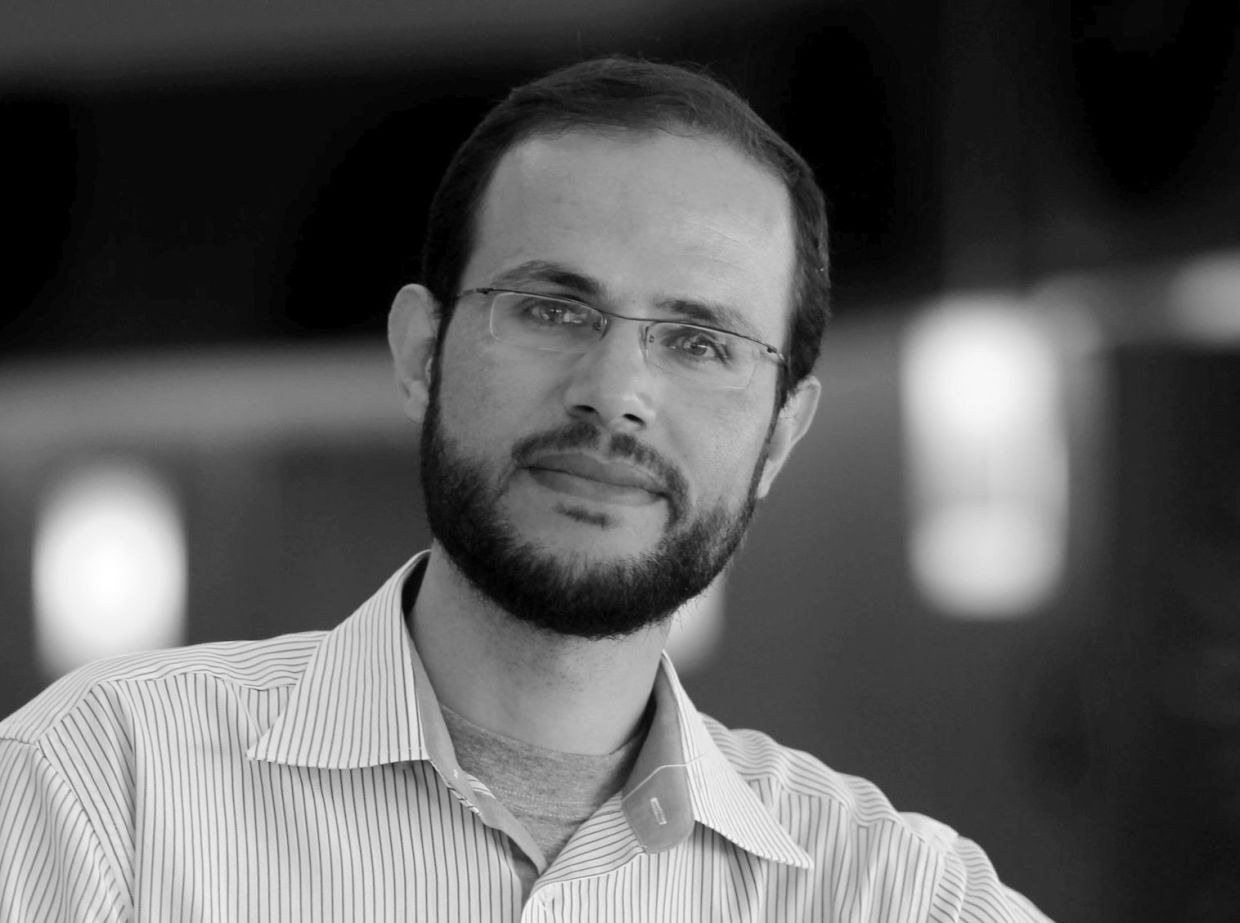On Thursday, December 7, Palestinian writer, poet, professor, activist and co-founder of “We Are Not Numbers” Refaat Alareer was killed, alongside his family, by an Israeli airstrike on Gaza.
Alareer was one of Gaza’s most prominent writers, poets and activists. Israel’s deliberate targeting of him is another episode of Israel’s genocidal campaign against the Palestinian people and its intent to remove all sorts of cultural, historical, artistic and literary expressions and heritage and to silence pro-Palestinian voices.
It is exactly what Alareer was struggling against when he wrote his poem, “If I must die”, and published on his X (previously Twitter) profile on November 1 – almost one month after the start of Israeli aggression on Gaza.
An Artistic, Literary and Cultural Legacy
Born on September 23, 1979 in the neighborhood of Shuja’iyya in Gaza City, Alareer taught literature and creative writing at the Islamic University of Gaza and co-founded the “We Are Not Numbers” project in 2015. During his younger years, he completed his BA in English language and literature at the Islamic University in Gaza before pursuing his MA in Comparative Literature at the University of College London (UCL) in 2007.
In an article in ANF News, Alareer describes the way his childhood was shaped by the occupation when, as a kid, he “grew up throwing stones at Israeli military Jeeps, flying kites, and reading”.
Alareer famously wrote about his childhood in Gaza during the First intifada. In some of his work, he describes how every move and decision he took were – usually negatively – influenced by the Israeli occupation, and how books were a luxury he couldn’t effort as “[having] books on Palestine and resistance was a crime punishable by the Israeli occupation.”
Alareer edited two Palestinian short story volumes, namely Gaza Unsilenced in 2015 which is a book of articles on Israeli’s 2014 offensive on Gaza that killed about 2400 Palestinians, and Gaza Writes Back in 2014 which he stated was “an attempt to provide a testimony for future generations” and which was written by 15 young Palestinians living in Gaza.
We Are Not Numbers
Alareer co-founded “We Are Not Numbers” (WANN), a project established by the Euro-Mediterranean Human Rights Monitor in 2015, to provide English-language writing workshops for young Palestinians in Gaza.
The project provides training for participants and mentorships with experienced English language experts and creators.
By 2021, WANN had mentored 300 young Palestinian writers and had widened its range of activities to include providing virtual online tours of Gaza cities, sponsoring talks by Palestinian intellectuals and activists and many others. In 2023, WANN accepted its 17th cohort of prospective writers.
Alareer’s life in 2023
A few months before the October escalations, Alareer wrote an article for SCALWAG magazine titled “They Even Keep our Corpses”, which was published on June 20, 2023 which addresses the issue of Palestinians dying in Israeli prisons. The article’s relevance could not be more stark as it is today, as recently freed Palestinians from Israeli prisons have revealed the degree of torture, maltreatment and even murder that Palestinian prisoners are subject to.
Since the October escalations, Alareer made various media appearances across international news platforms and characterized Operation Al-Aqsa Flood as “legitimate and moral”, and likened it to the Warsaw Ghetto Uprising.
His last X post (tweet) quoted United States Vice President Kamala Harris and stated that “[the] Democratic Party and Biden are responsible for the Gaza genocide perpetrated by Israel” which has so far received around 9.7 million views at the time of writing on the afternoon of December 8.
Despite Israeli attempts to silence free voices, Alareer’s legacy remains in the minds of Palestinians and pro-freedom thinkers around the world.
Alareer’s work and character have proven to be indispensable to discussions revolving around the decolonization of Palestine. But as is the case with other prominent Palestinian writers, Alareer’s work will live to tell his stories, Gaza’s struggles, and the resistance’s fight.
In his very own words, “If I must die, you must live to tell my story…”


